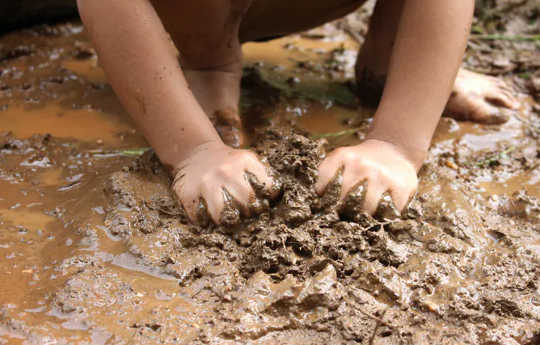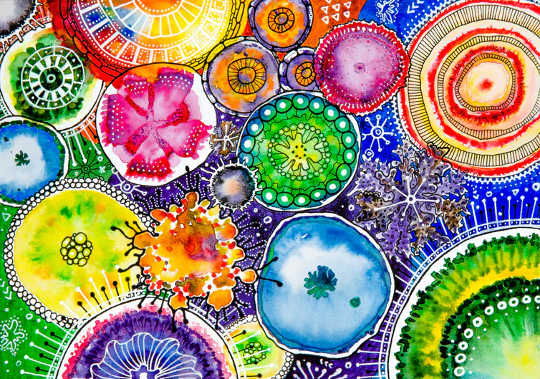By 2050, 70% of the world’s population is expected to live in towns and cities. Urban living brings many benefits, but city dwellers worldwide are seeing a rapid increase in noncommunicable health problems, such as asthma and inflammatory bowel disease.
Some scientists now think this is linked to biodiversity loss – the ongoing depletion of the varied forms of life on Earth. The rate at which different species go extinct is currently a thousand times higher than the historical background rate.
Microbial diversity is a large part of the biodiversity that is being lost. And these microbes – bacteria, viruses and fungi, among others – are essential for maintaining healthy ecosystems. Because humans are a part of these ecosystems, our health also suffers when they vanish, or when barriers reduce our exposure to them.
The inner ecosystem
Our gut, skin and airways harbour distinct microbiomes – vast networks of microbes that exist in different environments. The human gut alone harbours up to 100 trillion microbes, which outnumbers our own human cells. Our microbes provide services that are integral to our survival, such as processing food and providing chemicals that support brain function.
Get The Latest By Email
Contact with a diverse range of microbes in our environment is also essential for bolstering our immune system. Microbes found in environments closer to the ones we evolved in, such as woodlands and grasslands, are called “old friend” microbes by some microbiologists. That’s because they play a major role in “educating” our immune systems.
Part of our immune system is fast-acting and non-specific, which means it attacks all substances in the absence of proper regulation. Old friend microbes from our environment help provide this regulatory role. They can also stimulate chemicals that help to control inflammation and prevent our bodies from attacking our own cells, or innocuous substances like pollen and dust.
Exposure to a diverse range of microbes allows our bodies to mount an effective defensive response against pathogens. Another part of our immune system produces tiny armies of “memory cells” that maintain a record of all the pathogens our bodies encounter. This enables a rapid and effective immune response to similar pathogens in the future.
To help fight infectious diseases like COVID-19, we need healthy immune systems. But this is impossible without support from diverse microbiomes. Just as microbes have important roles in ecosystems, by helping plants grow and recycling soil nutrients, they also provide our bodies with nutrients and health-sustaining chemicals that promote good physical and mental health. This strengthens our resilience when facing diseases and other stressful times in our lives.
But our cities are often lacking in biodiversity. Most of us have swapped green and blue spaces for grey spaces – the concrete jungle. As a result, urban dwellers are far less exposed to a diversity of health-promoting microbes. Pollution can affect the urban microbiome too. Air pollutants can alter pollen so that it’s more likely to cause an allergic reaction.
“Germaphobia”, the perception that all microbes are bad, compounds these effects by encouraging many of us to sterilise all of the surfaces in our homes, and often prevents children from going outside and playing in dirt. The soil is one of the most biodiverse habitats on Earth, so urban lifestyles can really disadvantage young people by severing this vital connection.
 Children need diverse microbiomes in their environment to develop healthy immune systems. The_Fairhead/Shutterstock
Children need diverse microbiomes in their environment to develop healthy immune systems. The_Fairhead/Shutterstock
People living in more deprived urban areas have poorer health, shorter life expectancies and higher rates of infections. It’s no coincidence that these communities often lack accessible, high quality green and blue spaces. They’re also less likely to be able to afford, or have the time and energy to enjoy affordable fruit and vegetables.
What can we do?
We need to get serious about the urban microbiome.
Restoring natural habitats can help increase biodiversity and the health of city residents. Growing more diverse native plants, creating safe, inclusive and accessible green spaces and rewilding inner city and suburban parks can restore microbial diversity in urban life.
Our research is helping urban designers restore habitats in cities that can promote healthy interactions between residents and environmental microbes.
But access to these green and blue spaces, and affordable nutrition, must be improved. Support for allotments and community gardens could provide free, nutritious food and exposure to helpful microbes in one fell swoop, while sessions that teach people how to grow their own food could be prescribed by health professionals.
Promoting connections with nature – including the microbes many of us currently shun – should be a key part of any post-pandemic recovery strategy. We must protect and promote the invisible biodiversity that is vital to our personal and planetary health.
About the Author
Jake M. Robinson, PhD Researcher, Department of Landscape, University of Sheffield
This article is republished from The Conversation under a Creative Commons license. Read the original article.
books_environmental








